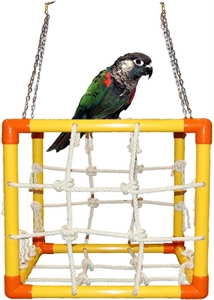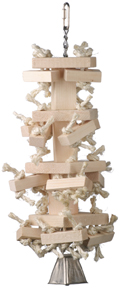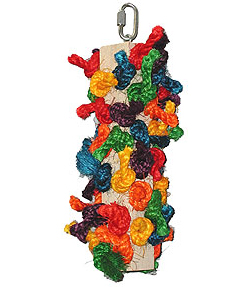Categories
- 10 Dollars and Under
- 5 Dollars and Under
- Avian Wear (Human and Feathered)
- Avitech
- AVIX Products
- Bees Wax Candles
- Bird Beds
- BIRDCARE Company Supplements
- Birdie Breads / Cookies
- Birdie Mashes
- Books / DVDs / Clickers
- Cage Accessories and Liners
- Cages
- Christmas Ideas
- Dishes, Bottles, Skewers
- Egg Food, Cuttle / Mineral
- Gift / Personal Items
- Gift Certificates
- Goldenfeast Gourmet Blends
- Hand Rearing / Nesting Supplies
- Harnesses / Travel Carriers
- Health / Wellness / Grooming
- Lighting / Lamps
- Lory Diets
- Molly's Bird Toys
- Nutritional
- Organic / Sprouters
- Parrot Greeting Cards
- Pellets
- Perches & Swings
- Perches FLAGSTONE
- Pest Control, Disinfectant Clean
- Pet Memorial
- Play Stands, Trees, Hanging Gym
- Poultry
- Ribbons &Bows, Doggies & Critter
- Seeds
- Snacks & Treats
- Toy Parts
- Toys
- Toys For the Feet
- Twin Beaks
- Window Decals
- Wingdow Seats
- Featured Products ...
- All Products ...
Manufacturers
Information
More Information
Minerals
-
Calcium. Very important for it's involvement in the development of bones and muscles, blood coagulation, nerve impulse transmission, egg production. Eggs are 85% calcium. Works together with magnesium to aid in the normal contractions of muscles, including the most important muscle, the heart. Vitamin D3, calcium and phosphorus are all connected. Poor calcium absorption is the result of high phosphorus levels, which lower the vitamin D3 levels, then calcium is not absorbed properly. Sources of calcium are dark green leafy vegetables, broccoli, dried beans and peas, kale, turnip greens, yogurt, tofu, cheeses. Calciboost
-
Phosphorus. Is needed for growth, maintenance, repair of all the bone tissues and the strong structure and functioning of bones. Phosphorus converts carbohydrates, proteins and fats into energy and is a component of a cell membrane. Good sources are cereal grains, liver, yogurt, chicken, peanut butter, almonds, lima beans, kidney beans, potatoes, eggs, broccoli, whole wheat bread.
-
Potassium. Is necessary in regulating body fluids and in the transmission and function of the nervous system. Potassium also helps to maintain the contraction and relaxation of muscles and the metabolism of carbohydrates. Goods sources are bananas, apricots, potatoes, squash, peanuts, split peas, oranges, cantaloupe, grains, fruits and vegetables.
-
Sulfur is a component of proteins, insulin, thiamin and biotin. Also involved with the storage as well as the release of energy. Sulfur is a part of the genetic material in cells. Sulfur is present in protein diets and in chicken, eggs, dried beans and peas.
Other trace minerals needed in the parrot diet, but in lower amounts include sodium, chlorine, magnesium, silicon, copper, iodine, selenium, iron, manganese, cobalt, zinc, molybdenum, chromium, fluoride, nickel, arsenic, bromine.
Important Links
- A Bit About Us
- A Guide to the Selection of Safe Toys for your Bird(s)
- Amino Acids
- Common Problems that can Happen with Baby Chicks
- Birdcare Simple System
- Fruits
- Giardia
- Goldenfeast Gourmet Blends Ingredients Listing
- Guardian Angel
- Minerals
- Nuts
- Substances Toxic to Our Birds
- The Basic Nutrients
- Toxic and Non Tox Plants Shrubs Trees
- US to Metric Conversions
- Vegetables
- Vitamins
- Volkmans Label Ingredients
- Flight Suit Sizing Chart




